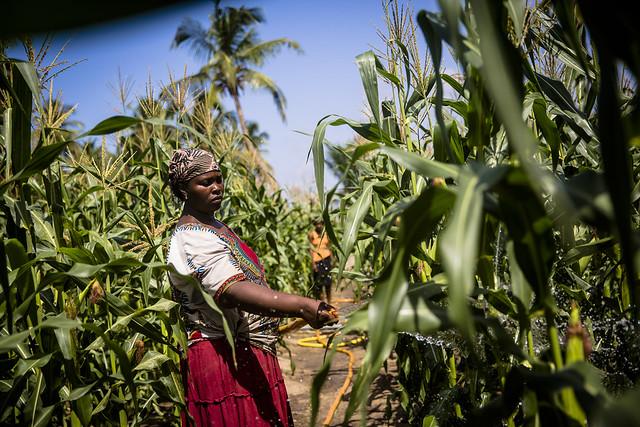
The REACH-STR project enhances water resilience in Northern Ghana by integrating social dynamics into climate adaptation strategies, enabling communities to respond more effectively to water-related challenges. By identifying shifts in gender roles and migration patterns, the project informs targeted interventions that improve agricultural practices and water management. Additionally, the capacity-building efforts for local institutions ensure that development plans are responsive to the unique needs of the community, fostering sustainable water use and strengthening overall resilience against climate variability.
As climate change and societal dynamics evolve in Ghana, development projects are adapting to keep pace. Northern Ghana faces high climate variability, natural resource pressures, and rapid socioeconomic changes, posing complex challenges for rural development planning and policy. Historically, many initiatives focused on tangible infrastructure like schools, roads, and hospitals, often neglecting the nuanced cultural fabric of society, including power dynamics, norms, and values.
The Resilience Against Climate Change-Social Transformation Research and Policy Advocacy (REACH-STR) project addresses this gap by providing an analytical framework that helps development workers measure societal changes and incorporate these complexities into climate change responses. In partnership with the Science and Technology Policy Research Institute, University of Ghana-CMS, and University for Development Studies, and as part of the EU Ghana Agriculture Programme, REACH-STR offers technical support, knowledge sharing, and funding to facilitate the framework’s use in Northern Ghana.
Since implementing the framework, REACH-STR has gathered data on migration, gender dynamics, and climate resilience, revealing shifting social dynamics and barriers to incorporating new insights into development planning.
For instance, in Ghana's Upper-West region, men are spending more time in illegal mining jobs away from home, prompting women to take on new agricultural roles that alter social dynamics. Recognizing challenges in household decision-making and property rights, state and non-state actors have adjusted interventions to provide targeted agricultural support for women.
REACH-STR identified knowledge gaps and insufficient institutional capacity as primary barriers to integrating social transformation analysis into projects. This highlights the need for targeted capacity building to support effective development planning and policy formulation. The regional minister praised the program for addressing climate change impacts while equipping the community with tools to strengthen their capacity. The Metropolitan, Municipal, and District Assemblies used the framework to guide district development through planning and implementing policies; it proved effective in the Wa East District by reducing plan preparation time and costs while improving responsiveness.
The program underscores that people's experiences and responses to change are dynamic and non-linear, emphasizing the need for development projects to adapt accordingly.
#WaterWiseEU campaign
This story has been submitted by a partner of the #WaterWiseEU campaign. The EU-wide campaign focuses on water resilience, aiming to change the way we see, use and value water. Find out more about the campaign and how you can get involved.
Details
- Publication date
- 3 January 2025
- Author
- Directorate-General for Environment

